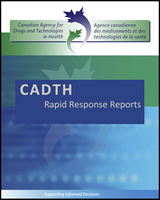Post-traumatic stress disorder (PTSD), general anxiety disorder (GAD), and major depression disorder (MDD) are common debilitating disorders with a lifetime prevalence rate of approximately 12%, 2.6%, and 8% of Canadians, respectively. In addition to pharmacologic treatment, different treatment modalities such as psychotherapy, electroconvulsive therapy, transcranial magnetic stimulation, vagus nerve stimulation, deep brain stimulation, and neuro-linguistic programming (NLP), have been suggested for these disorders.
NLP is a therapeutic technique used to detect and re-program unconscious patterns of thoughts and behavior in order to alter psychological responses. The creators of NLP have claimed that there is a connection between the neurological processes (neuro), language (linguistic) and behavioral patterns learned through experience (programming), and as such, it can be used in business, education, and medicine for conditions such as phobias, anxiety and depression. NLP is a multi-dimensional process usually comprised of steps such as building rapport between physician and patient, information gathering and desired health outcome definition, and use of techniques and tools such as sets of questions to facilitate a change in thinking and behavior of patients. Therapy sessions can take place weekly with the total number of sessions depending on individual needs.
This Rapid Response report aims to review the clinical evidence of NLP for PTSD, GAD and depression. Evidence-based guidelines on the use of NLP for these disorders will also be examined.
Disclaimer: The Rapid Response Service is an information service for those involved in planning and providing health care in Canada. Rapid responses are based on a limited literature search and are not comprehensive, systematic reviews. The intent is to provide a list of sources of the best evidence on the topic that CADTH could identify using all reasonable efforts within the time allowed. Rapid responses should be considered along with other types of information and health care considerations. The information included in this response is not intended to replace professional medical advice, nor should it be construed as a recommendation for or against the use of a particular health technology. Readers are also cautioned that a lack of good quality evidence does not necessarily mean a lack of effectiveness particularly in the case of new and emerging health technologies, for which little information can be found, but which may in future prove to be effective. While CADTH has taken care in the preparation of the report to ensure that its contents are accurate, complete and up to date, CADTH does not make any guarantee to that effect. CADTH is not liable for any loss or damages resulting from use of the information in the report.

